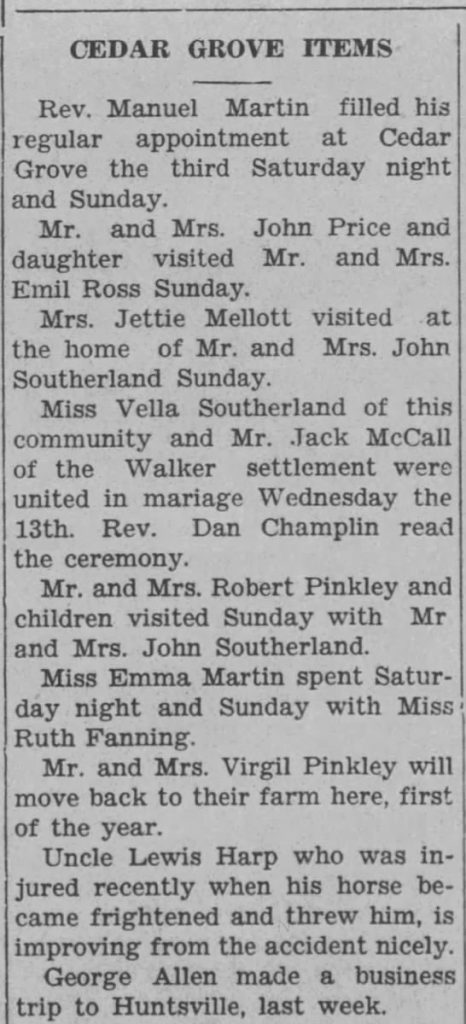While doing some research, I came across this short article that ran in newspapers from St. Louis to Little Rock in the year 1902:
“Eureka Springs, Ark., April 29 – Dave Worley, 85 years old, grandfather and great grandsire to more than a hundred living persons, died at his home on Keels Creek, five miles south of here, Sunday. He had fifteen children by his first wife and nine by his second. In the funeral train was a wagon in which rode one of his granddaughters with ten of her children ranging from one to twelve years. The remainder of them were compelled to find other accommodations. Fifteen years before the war, Uncle Dave was a slayer of bears and trapper of wide renown throughout North Arkansas.”
When I was a teenager, Jack McCall gave me some catnip and told me to give it to the young cat that I’d recently adopted at the Good Shepherd Humane Society. Miss Kitty still ranks as my favorite cat. Grandpa Jack meant for the catnip to be a treat for her, and it certainly was. She swooned and purred and didn’t know what to do with herself. I didn’t get quite that excited after finding this article, but almost.
But as tantalizing as this information is, I don’t know what to do with it because it doesn’t seem to fit anywhere. There is a David Worley buried in the Shady Grove Cemetery, but he was only 63 at death. He married a relation of mine, Jemimah Harp at Cassville, Mo., in 1865. He’d recently returned to the Ozarks after being released as a prisoner of war in Georgia. This David Worley only had eight children of his own that I’ve been able to trace, though he did gain an additional seven step-children when he remarried after Jemimah’s death. I’ve never been able to come up with the name of his parents, so the Uncle Dave Worley of the article could be his father. Or uncle.
Either way, the “slayer of bears” sounds like quite an interesting character.

